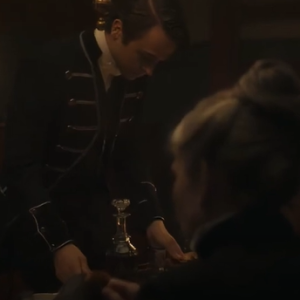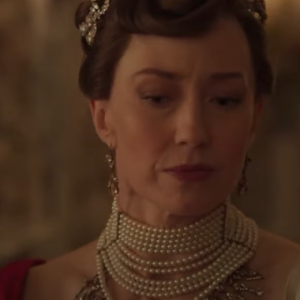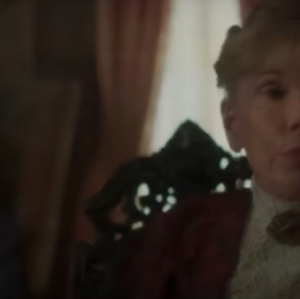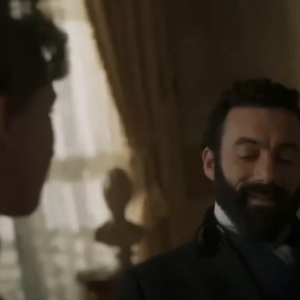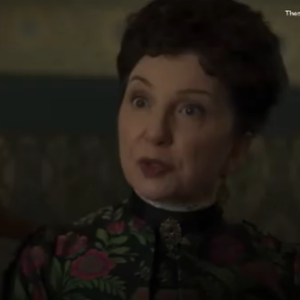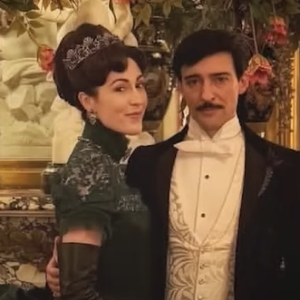Season 3 of The Gilded Age closes with a storm rather than a whisper, a finale that chooses emotional velocity over tidy resolutions and leaves fans begging for more. As the curtain falls on a chapter defined by splendor, scandal, and precarious alliances, the episode doubles down on the series’ signature tension: the tension between public triumph and private fragility. Across a sprawling web of power couples, fraught proposals, and reconciliations that feel almost impossibly intimate, the finale carves out a moment of reckoning for each major character. The result is a finale that feels earned, devastating, and irresistibly legible as an overture to season 4—the kind of end that invites speculative chatter while still delivering genuine, heart-stopping beats.
Bertha and George Russell stand at the epicenter of the finale’s emotional weather. For three seasons, their union has acted as the axle around which New York’s glittering machinery turns, a marriage of wealth, influence, and strategic calculation. The moment when George walks out—a literal and symbolic exodus from the family home—shatters the illusion of an unassailable power couple and lays bare a fissure that cannot be sanded over with charm or charm alone. The window-stared tableau, with Carrie watching in mute disbelief, crystallizes a central question: can a marriage sustained by ambition survive the erosion of emotional intimacy? The show doesn’t offer a neat verdict. Instead, it tilts toward ambiguity, suggesting that Bertha’s relentless drive may have both prophets and consequences: a professional triumph that risks personal erasure, a queenly command that cannot fully command the depths of love, and a marriage that may either reconfigure into something more resilient or fracture under pressure. The finale leaves viewers staring at an unfinished frame, hungry to see whether divorce becomes a headline or a pivot point for a redesigned alliance in season 4.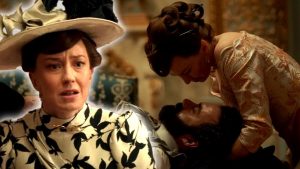
Against this macro-shift, Peggy Scott’s arc bursts with a different kind of luminosity. Her engagement to Dr. William Kirkland punctuates the episode with a radiance that felt earned after seasons of scrutiny, doubt, and the quiet revolution of Peggy’s self-actualization. The moment at Bertha’s Ball—an intimate, almost sacred, proposal scene—reads as a political act as much as a personal milestone. Peggy’s past, including difficult truths about her adoption revealed by Elizabeth, returns to the foreground, testing the resilience of her relationship and her own sense of self-worth. The social temperature around Peggy—how the Black woman navigating elite spaces negotiates acceptance, love, and professional ambition—gets sharper with this culmination. Even though William’s public declaration of love doesn’t unfold into a formal “yes” on screen, the subtext sings: Peggy has claimed a stake in her own story, and the audience is compelled to root for a future where her happiness isn’t contingent on male validation but on mutual respect and growth. The cliffhanger thus becomes a celebration and a wager at once: a promise that love can be a serious partner to ambition, and a prompt to season 4 to test the durability of that alignment.
Marian and Larry’s romance threads through the finale with a gentler, more incandescent glow, contrasting the high-voltage drama of Bertha and George. After a season of missteps, distance, and emotionally charged miscommunication, the pair finds a moment of truth at Bertha’s Ball—a conversation that feels intimate enough to be whispered, public enough to demand accountability. Their final dance—delicate, loaded, and hopeful—gives viewers a quiet, aching sense that reconciliation is possible, but not guaranteed. The finale refuses to erase the risk of heartbreak, instead inscribing it into the episode’s emotional architecture. Marian’s softened posture toward Larry, and Larry’s willingness to confront his father’s illness and their shared vulnerability, signal that renewal might be within reach. Yet the show withholds the definitive seal, leaving the audience suspended between the tenderness of possibility and the gravity of potential disappointment. It’s a careful, humane beat that keeps the season’s theme of imperfect, fragile happiness front and center, while preserving the suspense essential to a serialized thriller about wealth, status, and human longing.
From a structural standpoint, the finale brilliantly choreographs a tableau of contrasts: public splendor and private fragility, triumph and risk, clarity and ambiguity. The Bertha-Ball setting—an emblem of social performance—becomes the perfect arena to stage these clashes. The episode does not pretend that the gilded surface can hide the deeper fractures beneath; instead, it uses the spectacle to illuminate the emotional stakes, transforming fashion and festivity into a language of longing and consequence. The visual economy—glittering gowns, hushed conversations, and the tremor of a hand reaching for a ring—renders the season’s themes with an exacting sensitivity. The result is a finale that reads as both a farewell to the current narrative arcs and a blueprint for future exploration: the battles over marriage, money, and legitimacy will continue, and the characters will endure more love and loss in equal measure in season 4. 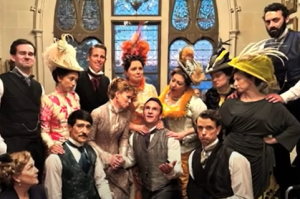
In the end, The Gilded Age Season 3 finale functions as a masterclass in emotional propulsion. It refuses to offer a single, neat closure, instead gifting audiences a mosaic of endings that feel earned and emotionally consequential. Bertha’s potential marital reckoning, Peggy and William’s quietly radiant engagement, and Marian and Larry’s reawakened connection each carry their own weight, ensuring that viewers exit with a heart full of questions and a mind racing with possibilities. Julian Fellowes and the writers have engineered a finale that is as generous as it is ruthless: generous in its willingness to invest in characters’ happiness, ruthless in its insistence that happiness in a world of dynastic power is never assured. With season 4 officially greenlit and anticipation at an all-time high, fans are left to wonder not only how these threads will resolve but what new dilemmas the gilded doors of New York will throw open when the next wave of episodes arrives. The emotional storm may have subsided into a tremor, but the reverberations promise to carry us forward into a fourth season that will test loyalty, redefine ambition, and remind us why The Gilded Age remains a necessary, luminous portrait of love, power, and resilience in America.
